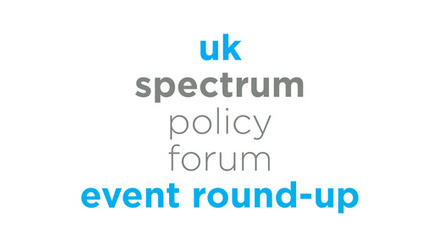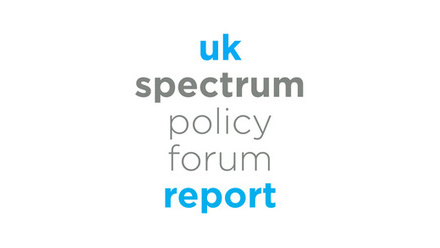UK SPF Cluster 2 Event Round-up: Future Communications and 6G
The UK SPF co-sponsored an international workshop with the University of Strathclyde, in Glasgow. In the two-day event, experts from industry, academia, and government from around the world spoke on the challenges and opportunities around 6G.
The event was co-sponsored by the Royal Academy of Engineering, IEEE Future Networks, the Scottish Government, and several international engineering academies. It reinforced Scotland’s ambition to lead in digital transformation and positioned the UK as a global thought leader in 6G development.
It also featured a UK SPF Cluster 2 workshop on Future Policies Framework and Spectrum Requirements, led by the UK SPF Chair, Dr. Abhaya Sumanasena, and with the participation of speakers from member companies, along with the Cluster 2 Chair, Prof. Robert Stewart.
Key Themes and Outcomes
- Technological Innovation: Experts explored AI-driven, autonomous networks, spectrum sharing, and the integration of computing and communications to enable scalable, intelligent systems.
- Policy and Standards: Calls were made for harmonized spectrum policies, agile regulation, and reduced licensing fees to accelerate 6G deployment.
- Sustainability and Use Cases: The workshop emphasized energy-efficient protocols, Open RAN adoption, and real-world applications in sectors such as agriculture, healthcare, and immersive media.
- Strategic Recommendations:
- Invest in R&D and innovation hubs.
- Expand digital inclusion through Open RAN and SME support.
- Develop global testbeds and strengthen industry-academia partnerships.
Future Policies Framework and Spectrum Requirements
Efficient spectrum deployment is essential for advancing connectivity. Although modern technologies improve utilization, growing demand and limited spectrum availability make sharing increasingly vital. In the UK, data consumption is concentrated in areas like ports and warehouses, prompting regulators to expand capacity where needed. Indoor traffic growth adds complexity, requiring innovative approaches. Ofcom's Shared Access Licensing supports denser deployments and more localized networks, potentially boosting availability—provided interference is well-managed.
The path to 6G emphasizes technological evolution over rapid rollout. 3GPP’s work on IMT-2030 reflects a focus on minimizing hardware reliance through software-driven solutions and global standardization. Spectrum use must align with demand, and regulation should support scalable, cost-effective network deployment through lower fees and streamlined planning. Policy must avoid unnecessary burdens while encouraging innovation and competition, with support from the research community.
Meeting future spectrum needs requires new sharing models and technologies that ensure seamless indoor and outdoor coverage. AI and software-defined radios can enhance spectrum management and speed up licensing, aiding the adoption of next-gen networks. Collaboration among industry, researchers, and regulators is key to addressing growing traffic demands, both indoors and outdoors.
5G Development Toward the 6G Roadmap
5G’s global rollout faces hurdles, including the need for compatibility with legacy systems and efficient spectrum use. Despite these challenges, mobile broadband traffic is growing rapidly thanks to 5G’s enhanced capacity. Industrial adoption, however, has yet to realize its full potential.
Looking ahead, 6G aims to harness higher frequencies and bandwidths, with AI addressing new use case complexities. The ecosystem will depend on collaboration among chipmakers, hyperscalers, and satellite operators. Each generation introduces new challenges—geopolitical tensions and standardization among them—but advances in AI and cloud computing promise more efficient, ubiquitous connectivity. To fully unlock 6G’s potential, stakeholders must focus on energy efficiency, smart data management, and sustainable business models.
Contact us

Tales Gaspar
Tales has a background in law and economics, with previous experience in the regulation of new technologies and infrastructure.

Sophie Greaves
Sophie Greaves is Associate Director for Digital Infrastructure at techUK, overseeing the Telecoms Programme, the Data Centres Programme, and the UK Spectrum Policy Forum.





